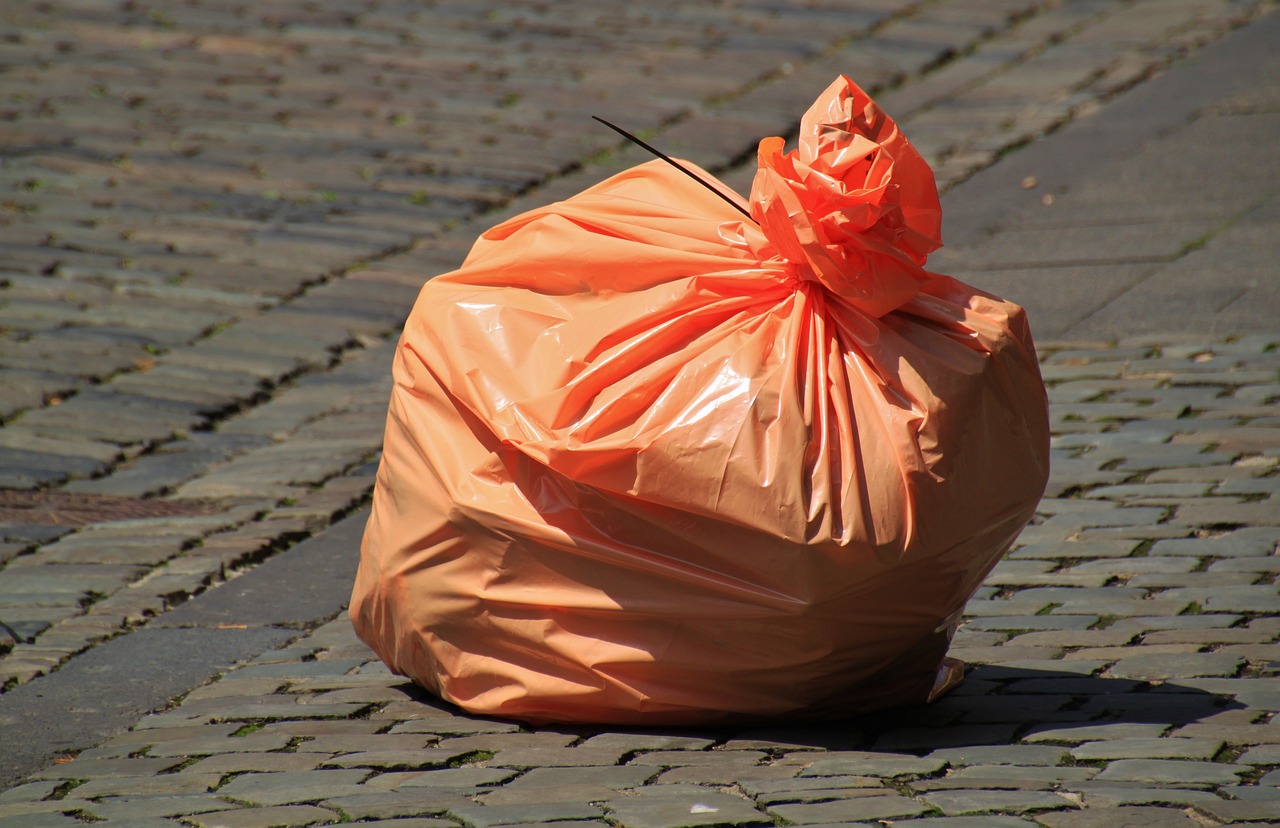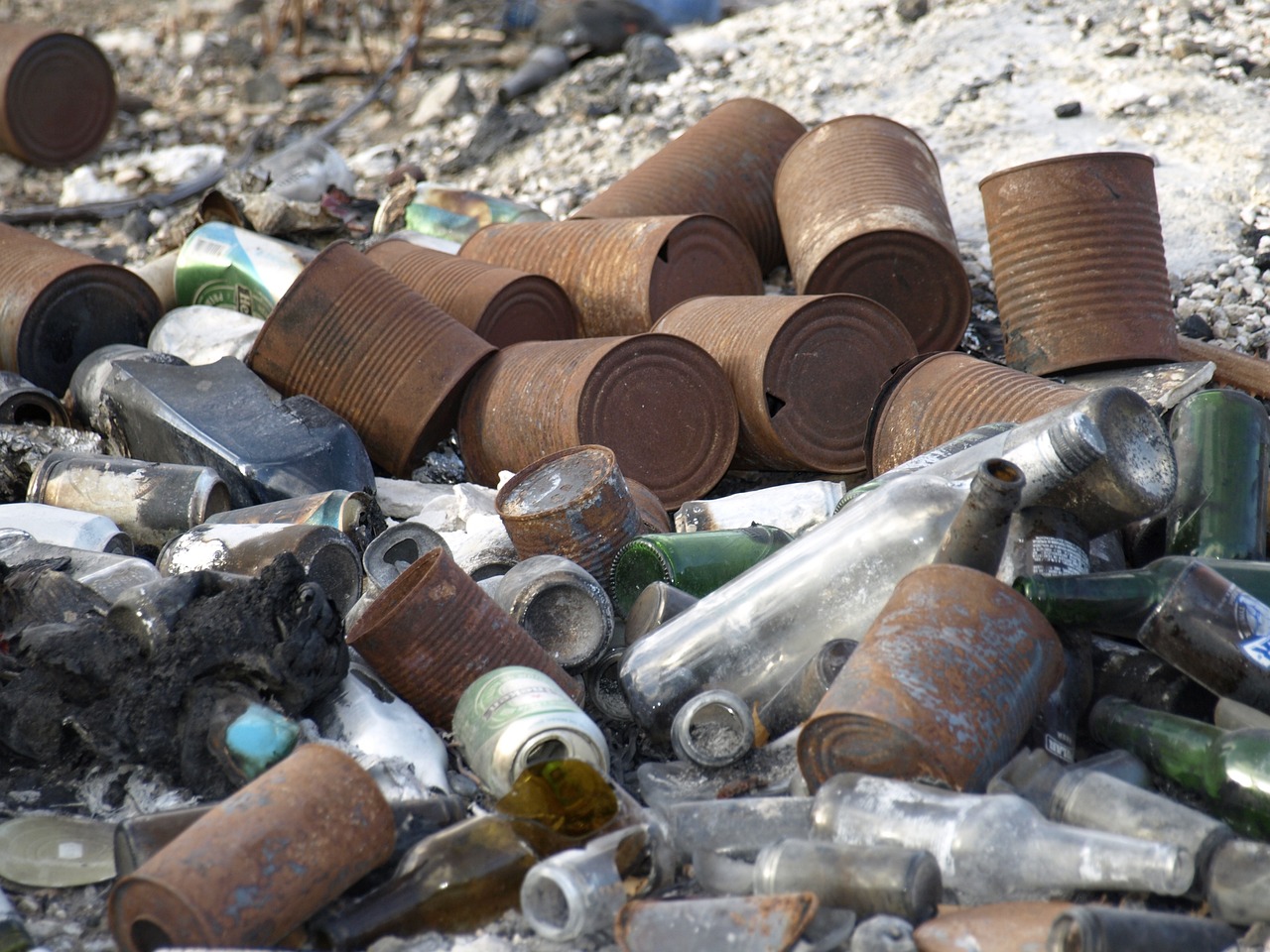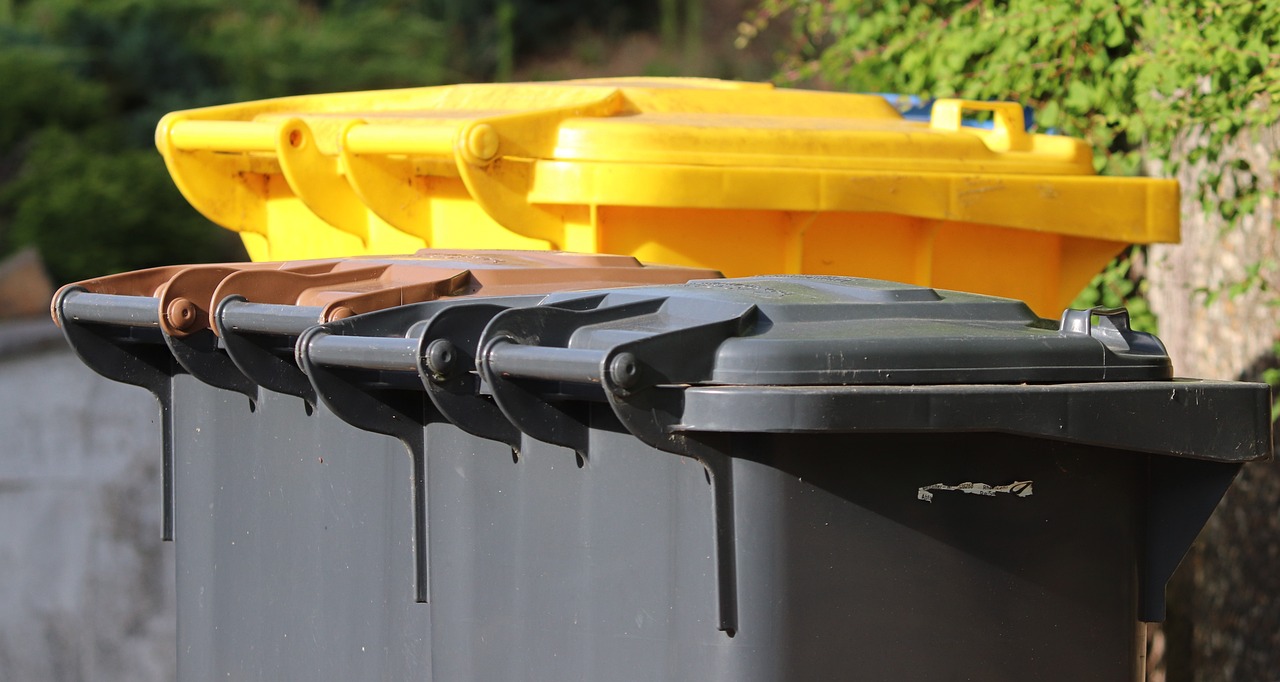Understanding The Zero-Waste Lifestyle
The zero-waste lifestyle is more than just a trend; it's a transformative movement aimed at reshaping our relationship with waste. Imagine a world where every item you use is thoughtfully considered, where nothing is simply tossed aside. Instead of following the conventional linear model of take-make-dispose, zero-waste advocates promote a circular economy that emphasizes reuse, repair, and recycle. This philosophy encourages us to rethink our consumption habits and recognize the value in what we often overlook.
At its core, the zero-waste lifestyle challenges us to minimize our waste output to as close to zero as possible. This doesn't mean we have to live in a way that feels restrictive or burdensome. In fact, it can be quite the opposite! By making small, intentional changes in our daily lives, we can significantly reduce our environmental footprint. Think of it as a journey rather than a destination. Each step you take—whether it's carrying a reusable bag to the store or opting for bulk items instead of pre-packaged goods—brings you closer to a more sustainable way of living.
One of the most exciting aspects of adopting a zero-waste lifestyle is the profound impact it can have on our planet. By reducing the amount of waste we generate, we contribute to a cleaner environment, less pollution, and a healthier ecosystem. It’s like planting a seed of change that can grow into a forest of sustainability. The ripple effect of our choices can inspire others to follow suit, creating a community of conscious consumers dedicated to preserving our planet for future generations.
However, the journey toward a zero-waste lifestyle is not without its challenges. Many people feel overwhelmed by the idea of eliminating waste entirely. But the truth is, every small change counts. Here are a few simple strategies to get started:
- Begin by assessing your current waste production. Keep track of what you throw away for a week.
- Identify areas where you can easily reduce waste, such as switching to reusable containers or opting for bulk purchases.
- Educate yourself on local recycling and composting programs to ensure you’re disposing of waste correctly.
Ultimately, the zero-waste lifestyle is about being mindful and intentional in our choices. It’s a commitment to living in harmony with the Earth, respecting its resources, and ensuring that we leave a positive legacy for those who come after us. So, are you ready to take the plunge into a waste-free world? The journey may seem daunting, but remember: every little bit helps, and together, we can create a greener, cleaner future!
Q: What are the first steps to adopting a zero-waste lifestyle?
A: Start by assessing your waste habits, setting realistic goals, and making gradual changes like using reusable bags and containers.
Q: Is a zero-waste lifestyle expensive?
A: Initially, some items may seem costly, but over time, you'll save money by reducing unnecessary purchases and opting for durable products.
Q: Can I really achieve zero waste?
A: While achieving *absolute* zero waste may be challenging, striving for it can lead to significant reductions in your environmental impact.

What is Zero-Waste?
This article explores the principles of the zero-waste lifestyle, its benefits, and practical tips for reducing waste in daily life. Discover how small changes can lead to significant environmental impact.
Zero-waste is more than just a trendy term; it's a transformative philosophy that aims to minimize waste by fundamentally rethinking how we produce, consume, and dispose of materials. Imagine living in a world where nothing goes to waste, where every product is designed with its entire lifecycle in mind. This approach encourages a circular economy, a system where resources are continuously reused and recycled rather than discarded. It’s like a never-ending cycle of life, where materials flow seamlessly from one use to another, reducing the burden on our planet.
At its core, the zero-waste movement challenges us to ask critical questions about our consumption habits. Why do we buy things we don’t need? How can we be more mindful of the products we choose? By addressing these questions, we can start to shift our mindset toward sustainability. The zero-waste philosophy encourages us to prioritize refusing unnecessary items, reducing what we consume, reusing what we can, recycling effectively, and rotting organic waste through composting. This holistic approach not only minimizes waste but also fosters a deeper connection with the environment.
To illustrate the zero-waste concept, consider the following principles:
- Refuse: Say no to single-use plastics and unnecessary packaging.
- Reduce: Cut down on what you buy and only purchase what you truly need.
- Reuse: Opt for reusable items instead of disposables, like cloth bags and stainless steel containers.
- Recycle: Familiarize yourself with local recycling rules to ensure proper disposal of materials.
- Rot: Compost organic waste to enrich the soil and reduce landfill contributions.
By embracing these principles, individuals can significantly impact the environment. The zero-waste lifestyle promotes not only a cleaner planet but also encourages creativity and innovation in how we think about products and materials. For instance, consider the joy of finding new uses for old items or the satisfaction of creating a compost bin that transforms kitchen scraps into nutrient-rich soil. It’s about making conscious choices that resonate with our values and contribute to a sustainable future.
Adopting a zero-waste lifestyle offers numerous benefits, including reduced environmental impact, financial savings, and improved health. This section highlights the positive effects on personal well-being and the planet.
The zero-waste lifestyle significantly reduces pollution, conserves natural resources, and mitigates climate change. This subsection discusses how minimizing waste contributes to a healthier planet for future generations.
Landfills are a major source of pollution and greenhouse gases. By embracing zero-waste practices, individuals can help decrease the amount of waste sent to landfills, promoting sustainability.
Zero-waste practices encourage the conservation of valuable resources, such as water and energy. This section examines how reducing consumption leads to a more sustainable use of the Earth's resources.
Transitioning to a zero-waste lifestyle can lead to significant financial savings by reducing unnecessary purchases and encouraging the reuse of items. This subsection explores cost-effective strategies for living waste-free.
Implementing a zero-waste lifestyle may seem daunting, but small, manageable changes can make a difference. This section provides practical tips for reducing waste in everyday life.
Changing shopping habits is essential for a zero-waste lifestyle. This subsection offers guidance on making sustainable choices, such as buying in bulk and selecting package-free products.
Composting and recycling are crucial components of waste reduction. This section explains how to effectively compost organic waste and navigate recycling systems to minimize waste.
What is zero-waste? Zero-waste is a lifestyle choice that aims to minimize waste through conscious consumption and responsible disposal of materials.
How can I start living a zero-waste lifestyle? Begin by making small changes in your daily habits, such as using reusable bags, avoiding single-use plastics, and composting organic waste.
Is zero-waste expensive? Initially, it may seem costly to invest in reusable products, but over time, zero-waste living can lead to significant savings by reducing unnecessary purchases.
Can I still recycle if I’m living a zero-waste lifestyle? Yes! Recycling is a key part of the zero-waste philosophy, but it should be combined with efforts to reduce and reuse.

Benefits of a Zero-Waste Lifestyle
Adopting a zero-waste lifestyle isn't just a trend; it's a transformative journey that can lead to a multitude of benefits for both individuals and the planet. Imagine a world where your daily choices contribute to a healthier environment, where your wallet feels a little heavier, and where your health improves simply by changing the way you live. Sounds appealing, right? Well, let's dive into the remarkable advantages of embracing this eco-friendly philosophy.
First and foremost, one of the most significant benefits of going zero-waste is the reduction of environmental impact. By minimizing the amount of waste we produce, we are directly contributing to a decrease in pollution. Landfills, which are overflowing with discarded materials, are notorious for emitting harmful greenhouse gases. When we choose to reduce, reuse, and recycle, we are not only keeping waste out of these sites but also mitigating climate change. This ripple effect can lead to a healthier planet for future generations.
Moreover, the financial aspect of a zero-waste lifestyle is often overlooked but is equally important. Transitioning to this way of living encourages individuals to rethink their spending habits. Instead of mindlessly purchasing single-use items or trendy gadgets, you begin to focus on quality over quantity. This shift can lead to substantial savings. For instance, consider the following:
| Expense Category | Traditional Spending | Zero-Waste Approach |
|---|---|---|
| Grocery Shopping | $100/month | $70/month (bulk buying) |
| Household Products | $50/month | $30/month (DIY solutions) |
| Clothing | $60/month | $20/month (thrift shopping) |
This table illustrates how shifting to a zero-waste lifestyle can lead to significant financial savings. By prioritizing reusable items and being mindful of purchases, you can easily cut down on unnecessary expenses.
In addition to environmental and financial benefits, adopting a zero-waste lifestyle can also enhance your personal health. Many of the products we consume are laden with chemicals and toxins, which can negatively impact our well-being. By choosing to make your own cleaning supplies or opting for natural alternatives, you reduce your exposure to these harmful substances. Plus, cooking at home with fresh, unpackaged ingredients often leads to healthier meals that nourish your body.
Lastly, let's not forget the sense of community that often arises from embracing a zero-waste lifestyle. When you start making conscious choices, you may find yourself connecting with like-minded individuals who share your passion for sustainability. This creates a supportive network that can inspire and motivate you to keep going. It's like joining a movement where every small action contributes to a larger cause.
In conclusion, the are vast and varied. From reducing environmental impact and saving money to improving personal health and fostering community connections, the advantages are compelling. So, why not take the plunge? Start with small changes, and watch as they accumulate to create a significant impact on your life and the world around you.
Q: Is it difficult to maintain a zero-waste lifestyle?
A: While it may seem daunting at first, starting with small changes can make it manageable. Over time, it becomes easier as you develop new habits.
Q: What if I can't find package-free products?
A: Many stores are beginning to offer bulk bins and package-free options. You can also consider shopping at farmers' markets or local co-ops.
Q: How can I educate others about zero-waste?
A: Share your journey on social media, host workshops, or simply talk to friends and family about the benefits and practices of a zero-waste lifestyle.

Environmental Impact
The zero-waste lifestyle is more than just a trend; it's a vital movement aimed at preserving our planet for future generations. By adopting this philosophy, we can significantly reduce our environmental footprint and contribute to a healthier ecosystem. Imagine a world where waste is minimized, resources are cherished, and pollution is drastically reduced. Sounds appealing, right? Well, that's exactly what zero-waste advocates strive for. With every small change we make, we can create a ripple effect that leads to monumental shifts in our environment.
One of the most pressing issues we face today is the overwhelming amount of waste that ends up in landfills. Did you know that landfills are a major source of greenhouse gas emissions? When organic waste decomposes in anaerobic conditions, it releases methane, a gas that is over 25 times more potent than carbon dioxide in terms of its heat-trapping ability. By minimizing our waste through zero-waste practices, we can help reduce the volume of waste sent to landfills, thereby decreasing these harmful emissions.
Moreover, the zero-waste approach encourages us to rethink our consumption habits. Instead of viewing products as disposable, we start to see them as valuable resources that deserve a second, third, or even fourth life. This shift in perspective not only helps in reducing waste but also fosters a culture of reusability and recycling. For instance, consider the following statistics:
| Waste Type | Environmental Impact |
|---|---|
| Plastic Waste | Can take up to 1,000 years to decompose, harming wildlife and ecosystems. |
| Food Waste | Contributes to methane emissions and wastes valuable resources like water and energy. |
| Textile Waste | Fast fashion leads to massive landfill contributions and resource depletion. |
As you can see, the impact of our waste choices extends far beyond just the trash bin. By reducing our consumption and embracing a zero-waste lifestyle, we can help conserve precious natural resources. This includes not only physical materials but also essential resources like water and energy. For example, producing one cotton t-shirt requires approximately 2,700 liters of water. By choosing to buy second-hand or sustainably-made clothing, we can drastically reduce the demand for such resource-intensive products.
Furthermore, the zero-waste lifestyle promotes biodiversity. When we reduce our reliance on single-use products and support sustainable practices, we help protect the natural habitats of countless species. This contributes to a balanced ecosystem where both humans and wildlife can thrive. Every time we choose to refuse plastic straws, carry reusable bags, or compost our food scraps, we are making a conscious decision to protect our environment.
In conclusion, the environmental impact of adopting a zero-waste lifestyle is profound. By minimizing waste, conserving resources, and supporting sustainable practices, we can create a healthier planet for ourselves and future generations. So, are you ready to take the plunge into a zero-waste lifestyle? Remember, every small step counts!
- What is the zero-waste lifestyle? It's a philosophy aimed at reducing waste by rethinking consumption, production, and disposal.
- How can I start living a zero-waste lifestyle? Begin by making small changes, such as using reusable bags and containers, and gradually incorporate more sustainable practices.
- Is zero-waste living expensive? Initially, it may seem costly, but it often leads to long-term savings by reducing unnecessary purchases.
- Can I still recycle while living a zero-waste lifestyle? Yes, recycling is a part of the zero-waste approach, but the focus is on reducing waste first.

Reducing Landfill Waste
Landfills are not just a place where our trash goes; they are a significant source of pollution and greenhouse gases. When we throw away our waste without a second thought, we are contributing to a cycle that harms our planet. The good news? By embracing a zero-waste lifestyle, we can actively reduce the amount of waste that ends up in these landfills. Imagine a world where our trash is minimized, and our resources are reused and recycled! It’s not just a dream; it’s a reality that we can create through conscious choices.
One of the most impactful ways to reduce landfill waste is by rethinking our consumption habits. When we purchase items, we often overlook the packaging and the lifecycle of the product. By choosing products with minimal or no packaging, we can significantly cut down on the waste we generate. For instance, opting for bulk items or bringing your own containers when shopping can drastically reduce single-use plastics. It's like going to a buffet—why pile your plate high with food you won’t eat? Instead, take only what you need and savor it.
Furthermore, we can extend the life of our belongings by repairing and repurposing them instead of discarding them. This not only keeps items out of landfills but also fosters a sense of creativity and resourcefulness. Think of it this way: when you repair a broken chair, you’re not just saving it from the landfill; you’re giving it a second chance to serve its purpose. Here are a few additional strategies to consider:
- Donate or Sell: If you have items you no longer need, consider donating them to local charities or selling them online. This way, someone else can benefit from what you no longer use.
- Mindful Purchasing: Before making a purchase, ask yourself if you truly need the item. This simple question can help curb impulse buys and unnecessary waste.
- Advocate for Change: Support local policies that promote recycling and waste reduction initiatives. Your voice can contribute to larger systemic changes.
By adopting these practices, we can significantly decrease the amount of waste that ends up in landfills. The journey towards a zero-waste lifestyle may seem overwhelming at first, but every small step counts. Just like a pebble creates ripples in a pond, your efforts can inspire others to join the movement. Together, we can create a cleaner, healthier planet for future generations. Remember, reducing landfill waste is not just about what we throw away; it’s about how we choose to live, consume, and care for our environment.

Conserving Resources
In our fast-paced world, where convenience often trumps sustainability, the idea of may seem like a daunting task. However, embracing a zero-waste lifestyle can actually simplify our lives while making a significant positive impact on the environment. By focusing on reducing consumption and reusing materials, we can help preserve our planet's precious resources for future generations.
One of the most effective ways to conserve resources is by adopting mindful consumption habits. This means being intentional about what we buy and how we use it. For instance, instead of purchasing single-use plastic products, we can opt for durable, reusable alternatives. Imagine replacing disposable water bottles with a stylish, reusable one. Not only does this reduce plastic waste, but it also saves money in the long run!
Another critical aspect of conserving resources is energy efficiency. By making small adjustments in our daily routines, we can significantly lower our energy consumption. Here are a few simple changes that can lead to substantial savings:
- Switching to energy-efficient light bulbs.
- Unplugging electronics when not in use.
- Using public transport or carpooling to reduce fuel consumption.
Moreover, conserving water is equally vital. Water is a finite resource, and its scarcity affects millions globally. Simple actions, like fixing leaks, taking shorter showers, and using a broom instead of a hose to clean driveways, can make a big difference. These practices not only help in conserving water but also lower utility bills!
In addition to individual efforts, supporting businesses that prioritize sustainability is crucial. Look for brands that utilize recycled materials, implement sustainable practices, and offer products designed to last. By choosing to support these companies, you are not only conserving resources but also encouraging a circular economy where sustainability is at the forefront.
Ultimately, conserving resources is about making conscious choices that align with our values. It’s about recognizing that every small action counts. Whether it’s opting for bulk purchases to reduce packaging waste or choosing to repair rather than replace, these decisions contribute to a larger movement towards sustainability. By embracing a zero-waste lifestyle, we can ensure that our planet remains vibrant and healthy for generations to come.
What is the zero-waste lifestyle?
The zero-waste lifestyle is a philosophy that encourages individuals to minimize waste by rethinking their consumption habits and focusing on reusing and recycling materials.
How can I start living a zero-waste lifestyle?
You can begin by making small changes, such as carrying reusable bags, avoiding single-use plastics, and composting organic waste.
What are the environmental benefits of a zero-waste lifestyle?
Adopting a zero-waste lifestyle helps reduce pollution, conserve natural resources, and mitigate climate change, contributing to a healthier planet.
Is a zero-waste lifestyle expensive?
While some zero-waste products may have a higher upfront cost, many practices lead to long-term savings by reducing unnecessary purchases.
How can I effectively compost at home?
You can start composting by collecting kitchen scraps, yard waste, and other organic materials in a compost bin, ensuring a good mix of greens (nitrogen-rich) and browns (carbon-rich) for optimal decomposition.

Financial Savings
Transitioning to a zero-waste lifestyle might sound like a lofty goal, but it can actually lead to some surprising . Imagine a life where you’re not constantly purchasing new items, but instead reusing and repurposing what you already have. It’s like discovering a hidden treasure in your own home! By making conscious choices, you can significantly reduce your expenses while also contributing to a healthier planet.
One of the most immediate ways to save money is by cutting out unnecessary purchases. When you adopt a zero-waste mindset, you start to see the value in items that can be reused or repaired instead of thrown away. For example, instead of buying new clothes every season, consider thrifting or swapping clothes with friends. This not only saves you money but also reduces the demand for fast fashion, which is notorious for its environmental impact.
Moreover, buying in bulk can be a game-changer. Many stores now offer bulk sections where you can fill your own containers with grains, nuts, and other staples. This not only reduces packaging waste but often comes at a lower cost per unit. Just think of it as a way to shop smarter, not harder! Here’s a quick comparison of costs:
| Item | Single-Serve Price | Bulk Price | Potential Savings |
|---|---|---|---|
| Rice (1 lb) | $2.00 | $1.50 | $0.50 |
| Nuts (1 lb) | $10.00 | $7.50 | $2.50 |
| Pasta (1 lb) | $1.50 | $1.00 | $0.50 |
As you can see, the savings can add up quickly! Additionally, by focusing on quality over quantity, you can invest in durable products that last longer, reducing the need for frequent replacements. Think of it as an investment in your future rather than a mere expense.
Another area where you can save is in food waste. By planning meals and using leftovers creatively, you can stretch your grocery budget further. This not only helps your wallet but also minimizes the amount of food that ends up in landfills, which is a win-win situation!
Lastly, consider the long-term benefits of a zero-waste lifestyle. While the initial transition may require some adjustments, the cumulative savings over time can be substantial. It’s akin to planting a seed; it may take time to grow, but the rewards are worth the wait. So, why not start today? Your wallet and the planet will thank you!
- What is the first step to start a zero-waste lifestyle? Begin by assessing your current waste habits and identifying areas where you can reduce waste.
- Is zero-waste living expensive? Initially, it may seem costly due to purchasing reusable items, but it saves money in the long run.
- Can I still enjoy convenience foods? Yes! Look for bulk options or brands that prioritize minimal packaging.
- How do I handle composting? Start by researching local composting guidelines; many communities offer resources.

Practical Tips for Going Zero-Waste
Transitioning to a zero-waste lifestyle may feel like a monumental task, but let me assure you, it’s all about making small, manageable changes that add up over time. Think of it as a journey rather than a destination. Every little step you take contributes to a larger goal of reducing waste and embracing sustainability. Here are some practical tips to help you get started on this rewarding path.
First off, let’s talk about shopping habits. This is where you can make a substantial impact. When you head to the store, try to avoid single-use plastics and unnecessary packaging. Instead, embrace the idea of buying in bulk. Many stores now offer bulk bins where you can fill your own containers with grains, nuts, and even cleaning supplies. Not only does this reduce waste, but it can also save you money! And speaking of containers, always carry a few reusable bags, jars, and bottles with you. This way, you’re fully equipped to avoid those pesky plastic bags that seem to multiply in our kitchens.
Another essential aspect of the zero-waste lifestyle is composting. Did you know that a significant portion of our household waste is organic material? By composting food scraps, yard waste, and other biodegradable items, you can drastically reduce what goes into your trash bin. Composting not only diverts waste from landfills but also creates nutrient-rich soil for your garden. If you’re unsure where to start, consider creating a simple compost bin in your backyard or even using a countertop composting system. It’s easier than you think!
Next, let’s dive into recycling. While recycling is crucial, it's essential to understand how to do it correctly. Each community has its own recycling guidelines, so take the time to familiarize yourself with what can and cannot be recycled in your area. For example, many people mistakenly throw plastic bags into their recycling bins, but these often end up causing issues at recycling facilities. Instead, consider returning plastic bags to grocery stores that have designated recycling bins. Remember, recycling is just one part of the waste hierarchy; reducing and reusing should always come first!
Lastly, let’s not forget about mindful consumption. Before making a purchase, ask yourself if you truly need the item. Is it something that will add value to your life, or is it just another trend? This mindset shift can significantly reduce impulse buying and help you prioritize quality over quantity. When you do decide to buy something, opt for second-hand items whenever possible. Thrift stores, online marketplaces, and swap events can be treasure troves for finding unique items without contributing to new production.
In conclusion, going zero-waste doesn’t have to be overwhelming. By making conscious choices in your shopping habits, composting, recycling correctly, and consuming mindfully, you can significantly reduce your waste footprint. Remember, every little effort counts, and together, we can create a more sustainable future!
1. What is the first step to adopting a zero-waste lifestyle?
Start by evaluating your current waste habits. Identify the areas where you produce the most waste and choose one or two changes to implement first.
2. Can I still buy products if they come in packaging?
Yes! The goal is not to be perfect but to reduce waste as much as possible. Look for recyclable or compostable packaging and consider buying in bulk.
3. Is composting difficult?
Not at all! Composting can be as simple as collecting kitchen scraps and yard waste in a bin. There are many resources available to help you get started.
4. How can I encourage others to adopt a zero-waste lifestyle?
Lead by example! Share your journey, provide tips, and invite friends to participate in activities like bulk shopping or composting workshops.

Shopping Habits
Changing your shopping habits is one of the most impactful steps you can take towards embracing a zero-waste lifestyle. It’s not just about what you buy, but how you buy it. Imagine walking into a store and feeling empowered by your choices, knowing that every item you purchase has been thoughtfully considered. This shift in mindset can lead to a more sustainable and fulfilling shopping experience.
First off, let’s talk about bulk shopping. Buying in bulk is not only cost-effective, but it also significantly reduces packaging waste. Many stores now offer bulk bins for grains, nuts, and even liquids like oils and vinegars. Bring your own reusable containers or bags to fill up, and you’ll be amazed at how much waste you can eliminate. It’s like a treasure hunt—finding the best deals while being kind to the planet!
Another crucial aspect of shopping sustainably is to choose package-free products. This may require a bit of planning, but the rewards are worth it. Look for local farmers' markets or stores that prioritize minimal packaging. When you opt for fresh produce, try to select items that don’t come wrapped in plastic. Instead of reaching for that pre-packaged salad, consider buying the individual ingredients and making your own. This not only reduces waste but also gives you the chance to experiment in the kitchen!
Additionally, consider the life cycle of the products you buy. Ask yourself questions like: Where did this come from? How was it made? What will happen to it after I’m done using it? By being mindful of the entire journey of a product, you can make more informed choices that align with your zero-waste goals. For instance, opting for second-hand items can be a fantastic way to reduce waste while saving money. Thrift stores and online marketplaces are gold mines for finding unique and pre-loved goods.
When it comes to clothing, the concept of slow fashion is gaining traction. Instead of buying fast fashion that contributes to waste and pollution, invest in high-quality, timeless pieces that you’ll wear for years. This not only helps reduce your carbon footprint but also supports ethical brands that prioritize sustainability. Remember, every time you choose to buy less, you’re making a statement against the throwaway culture.
Lastly, it’s essential to be aware of impulse buying. We’ve all been there—seeing something shiny and new and immediately wanting it. To combat this, try implementing a 24-hour rule: if you feel the urge to buy something, wait a day before making the purchase. This simple practice can help you determine whether you genuinely need the item or if it’s just a fleeting desire. You might find that you can live without it, which is a win for both your wallet and the environment!
In conclusion, transforming your shopping habits is a journey that requires conscious effort and creativity. By making small, intentional changes, you can significantly reduce your waste footprint and contribute to a healthier planet. Remember, every little bit counts, and your choices can inspire others to follow suit.
1. What are some easy ways to start shopping sustainably?
You can start by bringing your own reusable bags, opting for bulk items, and choosing products with minimal packaging. Also, consider second-hand shopping as a great way to reduce waste.
2. How can I find stores that support zero-waste shopping?
Look for local co-ops, farmers' markets, or stores that specifically advertise zero-waste or sustainable practices. Online directories can also help you locate these stores in your area.
3. Is it more expensive to shop sustainably?
While some sustainable products may have a higher upfront cost, buying in bulk and reducing impulse purchases can lead to significant savings over time.
4. Can I still shop at regular stores and be zero-waste?
Yes! You can still shop at regular stores by being mindful of your purchases, opting for package-free options when available, and avoiding single-use items.

Composting and Recycling
When we talk about embracing a zero-waste lifestyle, two of the most effective practices that come to mind are composting and recycling. These methods not only help in reducing waste but also play a pivotal role in nurturing our environment. Composting is the process of converting organic waste, like food scraps and yard waste, into nutrient-rich soil. Think of it as nature’s way of recycling! Instead of tossing your vegetable peels or coffee grounds into the trash, why not give them a second life? By composting, you’re not just reducing the amount of waste that ends up in landfills, but you're also creating a fantastic fertilizer for your garden. It’s a win-win!
Now, let’s dive into recycling. Recycling involves breaking down materials like paper, glass, and plastic so they can be remade into new products. This practice reduces the need for new resources and minimizes pollution. However, recycling can be a bit tricky. Many people are unsure about what can and cannot be recycled. For instance, did you know that certain types of plastics are not accepted in curbside recycling programs? To help clear the confusion, here’s a quick table that outlines commonly recycled materials:
| Material | Recyclable? | Notes |
|---|---|---|
| Paper | Yes | Ensure it's clean and dry. |
| Glass | Yes | Rinse before recycling. |
| Plastic (1 & 2) | Yes | Check local guidelines. |
| Plastic (3-7) | Varies | Not all are recyclable; check locally. |
| Food Containers | Yes | Clean thoroughly before recycling. |
As you can see, understanding what can be recycled is crucial to effectively participating in recycling programs. But don’t worry if you’re unsure; many communities offer resources to help you navigate local recycling rules. Now, let’s talk about how you can incorporate composting and recycling into your daily routine.
Start by setting up a compost bin in your kitchen or backyard. It doesn’t have to be fancy; even a simple container will do. Just remember to balance your greens (like fruit scraps) with browns (like dried leaves). This balance is essential for creating rich compost. You’ll be amazed at how quickly you can fill that bin and how much waste you’re diverting from the landfill.
On the recycling front, make it easy for yourself by having separate bins for different materials. Label them clearly to avoid confusion. It’s all about creating habits that make waste reduction effortless. You might even find that as you get into the groove of composting and recycling, you’ll start to notice other areas in your life where you can cut down on waste.
In conclusion, composting and recycling are not just tasks; they are part of a broader commitment to sustainability. By making these practices a regular part of your life, you contribute to a healthier planet and encourage others to follow suit. Remember, every little bit counts, and together we can make a significant impact!
- What can I compost? You can compost fruit and vegetable scraps, coffee grounds, eggshells, grass clippings, and leaves.
- How do I know if something is recyclable? Check your local recycling guidelines, which often provide a list of accepted materials.
- Can I compost meat or dairy? It's best to avoid composting meat and dairy as they can attract pests.
- What happens to my recycling after it's collected? It is taken to a recycling facility where it's sorted, cleaned, and processed into new materials.
Frequently Asked Questions
- What does it mean to live a zero-waste lifestyle?
A zero-waste lifestyle is all about minimizing waste by changing how we produce, consume, and dispose of materials. It encourages a circular economy where we aim to keep resources in use for as long as possible, reducing the amount of waste that ends up in landfills.
- How can I start my journey towards zero-waste living?
Starting your zero-waste journey can feel overwhelming, but it doesn’t have to be! Begin with small, manageable changes like carrying a reusable bag, opting for bulk purchases, or using a reusable water bottle. Every little step counts!
- What are the environmental benefits of going zero-waste?
Adopting a zero-waste lifestyle significantly reduces pollution, conserves precious natural resources, and helps combat climate change. By minimizing waste, you're contributing to a cleaner, healthier planet for future generations.
- Can a zero-waste lifestyle really save me money?
Absolutely! Transitioning to a zero-waste lifestyle often leads to financial savings. By buying less, reusing items, and making mindful purchasing decisions, you can cut down on unnecessary expenses. Think of it as an investment in both your wallet and the planet!
- What are some practical tips for reducing waste in my daily life?
There are plenty of practical tips to help you reduce waste! Start by changing your shopping habits—buy in bulk, choose package-free products, and avoid single-use items. Additionally, consider composting organic waste and familiarizing yourself with your local recycling rules.
- Is composting necessary for a zero-waste lifestyle?
While not mandatory, composting is a fantastic way to reduce food waste and enrich your garden soil. It allows you to turn organic waste into valuable resources, making it an essential practice for anyone serious about living a zero-waste life.
- How do I handle recycling in a zero-waste lifestyle?
Recycling is a key component of waste reduction. To navigate recycling effectively, familiarize yourself with the guidelines in your area, sort your recyclables properly, and always clean containers before placing them in the recycling bin.



















